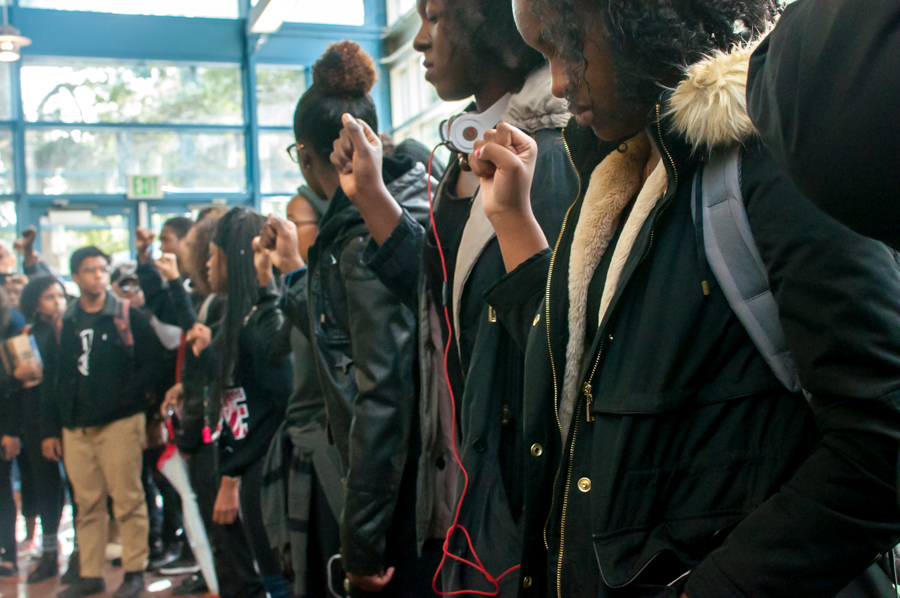
Demonstrators demand accountability, action from ASUCD following recent hate crime against female African American student.
At around 12:45 p.m. on Feb. 17, members of the Davis African Diaspora halted the ASUCD Senate debate at the ASUCD Coffee House (CoHo), demanding accountability and action from members of the association following the recent hate crime against a female African American UC Davis student at West Village on Feb. 15.
The demonstrators entered the CoHo and formed a line in front of the table where the Senate candidates were seated. Kamaal Thomas, current ASUCD Senator and member of the group, posed questions to the candidates on various topics related to Black Aggies.
The group of students sought to bring this instance to the forefront of the debate. Thomas, a fourth-year international relations and Chinese double major, explained that the protest was relatively spontaneous.
“I decided to do it five minutes before it happened,” Thomas said. “I completely blanked that the meeting was going on today, but I stepped in to grab a napkin while I was eating and noticed that the debates were going on, and I realized this was a perfect opportunity ask real questions that affect real students here at UC Davis- questions that that often go unasked during these debates.”
Thomas pointed out that only one candidate had made a statement condemning the hate crime, and demanded answers from all Senate candidates about how they plan to respond to this and future issues in the Black community. The protest was a moment of clear visibility for a community that often goes unseen at UC Davis.
Davares Robinson, a first-year cognitive science major, was one of the demonstrators standing in front of the candidates’ table. He said that while the experience may have been empowering, it was also indicative of the larger problem of lack of visibility for the Black community on-campus.
“[The protest] felt empowering, but the fact that it isn’t on the minds of the students on this campus, students who are going to be affected by the decisions that these Senators make, bothers me. Why is our going in there almost like a pop quiz to them?” Robinson said. “I am happy that we had the sense of agency to go in there, but I feel like having to do it in that way is indicative of the nature of the issue in general. It isn’t a primary issue. It is secondary.”
Carli Million, a first-year political science major who was in the CoHo while the demonstration took place, was unimpressed with the candidates’ responses to questions asked by the protesters.
“I felt a little emotional after hearing what everyone had to say. I definitely agree that the candidates need to focus less on their own platforms for this issue,” Million said. “I understand that the elections are an important time for them, but this is an issue that needs to be talked about on its own.”
Laura Lopeman, a first-year chemistry major who was also present during the protest, said she was glad these issues were brought to the forefront of the debate.
“I found out about the hate crime through the Chancellor’s email. Like [the demonstrators] pointed out, though, I never received a WarnMe notification, which doesn’t make any sense,” Lopeman said. “The demonstration was powerful.”
by SARA WILLIAMS




